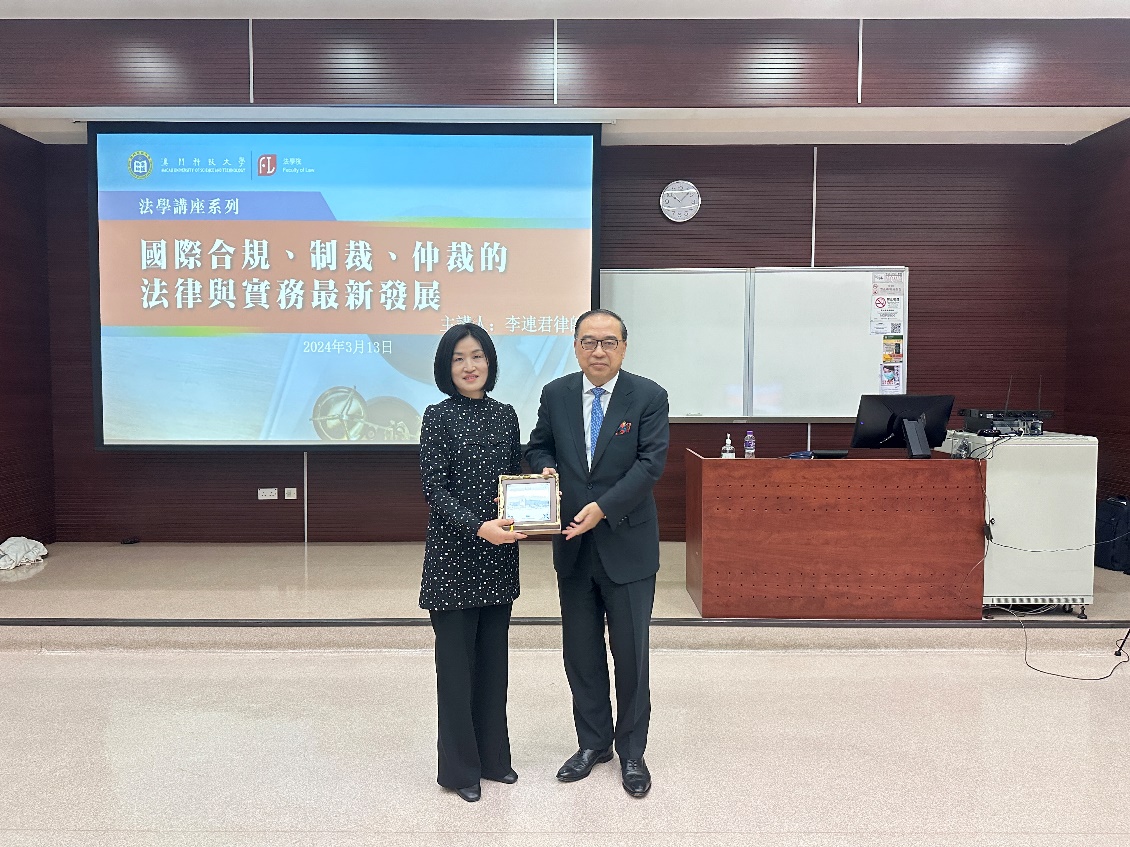At 10 a.m. on March 13, 2024, the law lecture “Latest Developments of Law & Practice in International Compliance, Sanctions, and Arbitration”, hosted by the Faculty of Law of Macau University of Science and Technology (M.U.S.T.), was successfully held at Room N214, Block N. The lecture was delivered by Lawyer Li Lianjun, Senior Partner of Reed Smith LLP and Head of the Commercial and Shipping Litigation Department. Lawyer Li possesses extensive experience in international trade, commerce, transportation, shipping, shipping financing, cross-border investment, international commerce, maritime dispute resolution, litigation, and arbitration. Since 2002, Lawyer Li has been a senior member of the Chartered Institute of Arbitrators and has been consistently recognized by renowned legal rating agencies such as Chambers, Legal 500, Legal Celebrities, Insights Magazine, and China Business Law Journal for many years. He has also been acknowledged as a leading lawyer in the shipping and transportation industry. The lecture was hosted by Professor Yi Zaicheng, Assistant Dean of the Faculty of Law, and attended by Dean Fang Quan, Program Director Xie Gengliang, and over 100 students from the Faculty of Law.

Figure I
Dean Fang Quan presented a souvenir to Lawyer Li Lianjun (on the right).
At the beginning of the lecture, Dean Fang Quan of the Faculty of Law presented a souvenir to Lawyer Li Lianjun on behalf of the faculty to express gratitude. During the lecture, Lawyer Li Lianjun spoke on five aspects: international sanctions risks, US export control measures, US anti-corruption laws and long-arm jurisdiction, international arbitration and dispute resolution, as well as the latest cases and developments. In detail, Lawyer Li pointed out that the cultures and laws of countries along the Belt and Road are vastly different. When faced with significant differences in legal traditions and cultures in the various jurisdictions involved, international arbitration is an ideal dispute resolution method to choose. Moreover, the place of arbitration is chosen by the parties, which also determines the procedural framework of the arbitration. Compared with other popular arbitration locations, the arrangements between Hong Kong and the Chinese Mainland are favorable to domestic enterprises. As international arbitration continues to evolve, arbitration rules and laws are constantly updated and warrant more attention. During the exchange and interaction session, the students actively participated by speaking and asking questions, and the lecture concluded successfully in a highly academic atmosphere.

Figure II
Venue of Event




